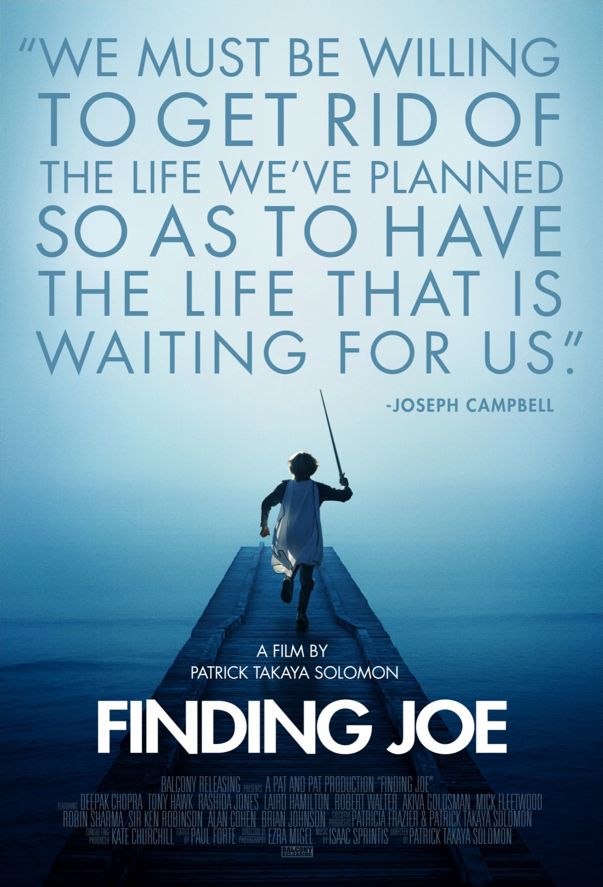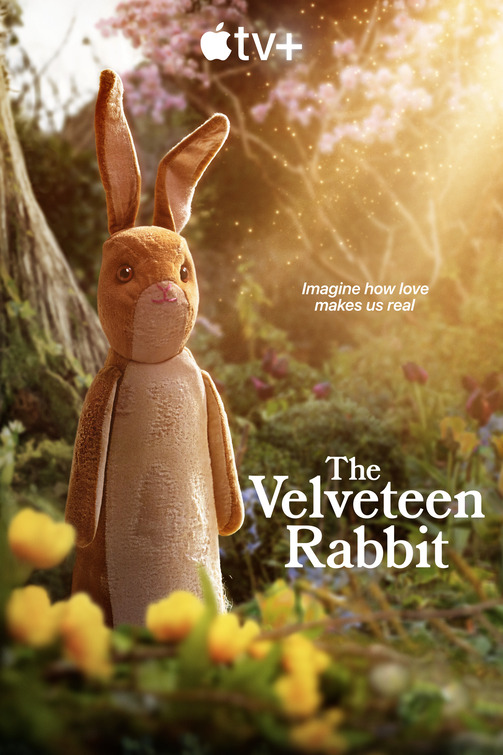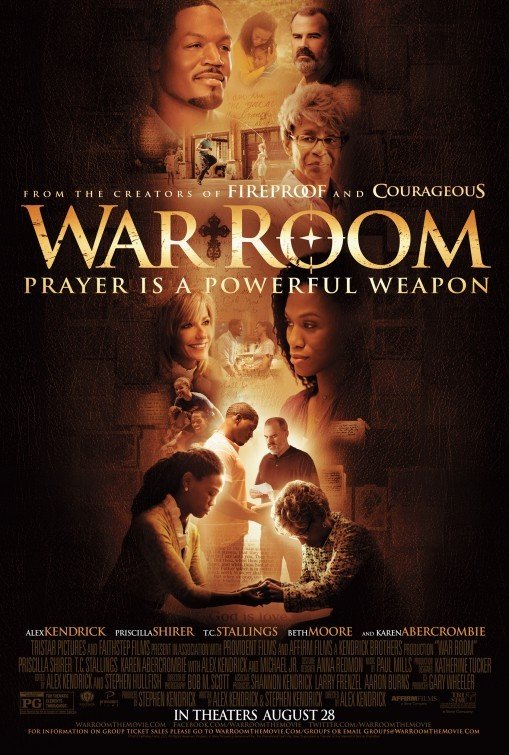"Romantic Self-Expression Without God"
| None | Light | Moderate | Heavy | |
|---|---|---|---|---|
| Language | ||||
| Violence | ||||
| Sex | ||||
| Nudity |
What You Need To Know:
FINDING JOE gives viewers a somewhat involved, but often provocative and absorbing, understanding of the basic inspirational teachings of Joseph Campbell. Though its pop psychology and New Age aphorisms verge at times on psychobabble, the movie’s not useless. In fact, it sometimes imparts a little practical wisdom. That said, it promotes personal self-expression without God and without the Gospel of Jesus Christ. Thus, FINDING JOE doesn’t mention Christian sacrificial love. Sacrificial love is the essence of the “greatest story ever told,” the story of Jesus Christ’s death for our sins and resurrection.
Content:
(RoRoRo, H, FRFR, PaPa, B, AB, ACap, L, V, S, N, MM) Very strong Romantic worldview supporting self-expression without God with some humanist leanings because this is mostly a psychological self-help kind of documentary, plus some strong false (or at least inadequate) New Age pagan concepts and light Hindu pagan and Buddhist pagan references (including one about the Christ and Buddha “principle” but placed in the context of the movie’s basic Romantic, humanist ideals and psychological, self-help worldview), plus a moral comment that rejects immoral hedonism and selfishness but another comment that implies a rejection of morality and ethics, and a couple light but oblique anti-capitalist comments; one “s” word; some light pretend violence with blood in a couple scenes to describe the basic pattern of many religious and cultural myths, legends and folktales using the model of a hero being slain by a monster and slaying a monster, so there are images of a boy being slain by a character wearing a demonic mask, boys fighting people in demon masks playing dragons, man lightly but emotionally describes death of his father and father’s girlfriend, and a scene where a boy sees one of the dragon characters take off a mask and shows another boy inside, which is meant to reflect the idea that in some stories the hero is not just battling monsters or antagonists, he’s also battling himself and needs to face and ultimately transcend his own inner demons or dragons, plus light action scenes from popular movies; no sex scenes but a very light reference against seeking only pure sexual pleasure and man mentions past child abuse but doesn’t go into any details; upper male nudity; no alcohol use; no smoking or drugs; and, some moral relativism and lack of any ethical concerns, plus a narcissistic focus purely on the personal rather than other people, much less God.
More Detail:
The Bible is full of divine wisdom about God and His Law from the Triune God of the Universe, including the only begotten Son of God, Jesus Christ. In the books of the Bible, especially the Book of Psalms and Book of Proverbs, there are also elements of what is sometimes called “practical wisdom.” Examples of this kind of advice is Proverbs 15:32, “He who ignores discipline despises himself, but whoever heeds correction gains understanding,” or Proverbs 16:19, “Better to be lowly in spirit and among the oppressed than to share plunder with the proud.”
This is exactly the kind of thing FINDING JOE, a self-help documentary in limited release, tries to impart. It’s a bit narcissistic, however, because it focuses on individual personal expression rather than helping others, much less serving God.
The movie is based on the more inspiring elements of the New Age and psychological philosophy of the late Joseph Campbell. Campbell was a literary scholar (with only a master’s degree) who branched out into comparative religion, mythology and pop psychology. He combined his research and thoughts on these fields with his academic expertise in storytelling, including his interest in Native American stories and the stories of King Arthur and the Knights of the Round Table.
According to a short interview with the movie’s director, Patrick Takaya Solomon, he based FINDING JOE on Campbell’s PBS interview with leftist journalist Bill Moyers, “The Power of Myth,” and a collection of Campbell’s writings, “Reflections on the Art of Living.” Interestingly, Solomon admitted to Movieguide® that he didn’t deal with the more contentious, and even bigoted and hateful, remarks against Christianity, Judaism and the Bible in “The Power of Myth.” Instead, Solomon wanted his movie to be a positive experience for viewers that will inspire them to examine themselves, explore the world and find the things they most love to do. Or, as Campbell himself often put it, “Follow your bliss.” (This doesn’t mean you should do anything you want, so, unlike Campbell when he mentions this pet phrase of his, the documentary has a too brief caveat saying that “Follow your bliss” should not be interpreted as following some kind of selfish, hedonistic lifestyle or a lifestyle that’s focused solely on obtaining physical pleasure, money or power.)
Basically, FINDING JOE focuses on giving viewers a somewhat involved, but often provocative and absorbing, understanding of the basic inspirational teachings of Joseph Campbell. Though the movie’s pop psychology and New Age aphorisms verge at times on being psychobabble, the movie’s not totally without merit and sometimes presents a kind of valuable practical wisdom. After all, it does indeed seem to be a wise thing to examine yourself honestly, face your personal fears so that you can transcend them, and find the special talents you have, including the things you most love to do, so that you can find some measure of personal growth and personal happiness. Sadly, however, because Campbell rejected any idea that God, gods or other supernatural beings exist, FINDING JOE promotes a Romantic, humanist ideal of how to live one’s life. It’s a life without God, and a movie with no solid references to God, Jesus Christ, the Bible, Christianity, or even Judaism (which is based mostly – but not entirely – on the Hebrew Scriptures portion of the Bible). How can one discuss the basic lessons people can learn from religion and mythology without mentioning the sacrifice of Jesus Christ and passages like this from Romans 12:1,2:
Therefore, I urge you, brothers and sisters, in view of God’s mercy, to offer your bodies as a living sacrifice, holy and pleasing to God – this is your true and proper worship. Do not conform to the pattern of this world, but be transformed by the renewing of your mind. Then you will be able to test and approve what God’s will is – his good, pleasing, and perfect will.
During its short running time, FINDING JOE focuses specifically on Joseph Campbell’s three-act structure for stories (especially stories, myths and legends that focus on one protagonist or hero or heroine) in his seminal book THE HERO WITH A THOUSAND FACES. Campbell labeled these three acts of “The Hero’s Journey” Separation or Departure, Initiation, and Return. Campbell actually stole this structure from anthropologist Arnold van Gennep’s 1909 book RITES OF PASSAGE, which says most or all primitive initiation rituals have three stages – Separation, Initiation, and Incorporation.
Using clips from popular movies like STAR WARS, THE LORD OF THE RINGS: RETURN OF THE KING, HARRY POTTER, ALIEN, THE WIZARD OF OZ, and THE TWILIGHT SAGA, the movie then explains the inspiring lessons an individual person can learn from the events, tests and challenges in these three acts of The Hero’s Journey. It also illustrates these lessons with various skits. Nearly all of the skits feature a young boy who goes out into the world searching for a “holy grail.” The young boy leaves home, travels down a winding path, encounters obstacles, monsters, demons, and dragons that test him, and eventually faces his fears and learns things about himself. Finally, the movie intersperses everything with many interview clips of pro-Campbell scholars and experts such as the president of the Joseph Campbell Foundation, Dr. Gay Hendricks of the Hendricks Institute, and a professional New Age philosopher named Brian Johnson, plus people like screenwriter Akiva Goldsman of A BEAUTIFUL MIND, I, ROBOT, CINDERELLA MAN, I AM LEGEND, and THE DA VINCI CODE, film director Catherine Hardwicke of THE NATIVITY STORY and the first TWILIGHT SAGA movie, Tony Hawk the professional skateboarding athlete, New Age writer and Hindu heretic Deepak Chopra, drummer Mick Fleetwood, professional surfer Laird Hamilton, and an author who at age 11 survived a plane crash that killed his father and, eventually, his father’s girlfriend, who slipped and fell off a ledge or ravine. Campbell influenced all these people. In recent years, many filmmakers and storytellers have followed Campbell’s three-act structure, including George Lucas, the creator of STAR WARS.
FINDING JOE gives many pieces of advice for personal expression, personal growth, finding one’s vocation or profession, and picking one’s hobbies. One piece of advice is don’t listen to those people who say what you’re doing can’t be done or can’t succeed. Another is don’t take the easy path because that’s usually the one that leads nowhere or leads to places you really won’t want to go. The other aphorisms include do the things you truly love to do, face your fears with courage (courage is defined as not conquering your fears but facing and transcending them), and don’t be too hard on your negative traits because they also are a part of what makes you, you, rather than someone else.
This overarching, essentially godless theme of “follow your bliss” or “follow your dreams” or “be who you are” is an example of Romantic self-expression. One of the major tenets of Romanticism, which is focused partly on personal self-expression, is that you should follow your personal dreams no matter where they lead. This kind of attitude or worldview can be found in the depiction of Vincent Van Gogh in the 1950s movie LUST FOR LIFE starring Kirk Douglas. In the movie, Douglas plays the painter as a tormented artist who had an obsession to paint that must be followed no matter what, even though it may lead to madness and death. Of course, as such, LUST FOR LIFE represents the dark side of Romantic self-expression. However, even if one doesn’t end up like Van Gogh did, one certainly can’t discover the infinite joys, peace, and satisfaction of communion and fellowship with God through Jesus Christ by simply following such Romantic notions.
In fact, in the Biblical Christian worldview, the goal of life on this earth is to serve God and to serve one’s fellow man. In doing such service, the Christian is slave to no man and no woman, and no slave to sin or iniquity, but a holy, sanctified servant of God. Thus, in Biblical Christianity, the Christian disciple becomes the person whom God through Jesus Christ wants him or her to be. Furthermore, God gives each person certain spiritual gifts or talents (see Chapters 12 through 14 in 1 Corinthians), but the greatest spiritual gifts are faith, hope, and love, especially the Bible’s definition of love, which should infuse everything Christians do.
FINDING JOE doesn’t even consider this Christian path as a possibility. Nor does it mention the idea of sacrificial love, which is the essence of the “greatest story ever told,” the story of Jesus Christ’s death for our sins and resurrection. How can you do a movie about the things that stories tell us and do for us without mentioning the story of Jesus Christ, the greatest story ever told?
Therefore, FINDING JOE, and all of Joseph Campbell’s work, is ultimately unworthy of our full attention because it doesn’t mention these things at all. The movie also converts all religious stories and all mythology, especially various forms of paganism like pantheism, Hinduism and Buddhism, to serve its New Agey but somewhat non-religious and Romantic pop psychology. (The non-religious aspect probably reflects Campbell’s increasing interest in Buddhism, which is often more like an agnostic or atheistic philosophy rather than a real religion.)
In addition, though FINDING JOE at one point says that the hero at some point should leave behind all the “Thou Shalt” and “Thou Shalt Nots” he may hear from those around him, it also says, too briefly, that following one’s bliss doesn’t mean that people should pursue a life of hedonism, selfishness, greed, and constant sexual pleasure. Other than that, however, the advice the movie gives is without any moral or ethical foundation. It also contains one “s” obscenity and some light depictions of violence.
Of course, if you tell people that at some point everyone needs to leave behind all the “Thou Shalt” and “Thou Shalt Nots,” you are still telling people what and what not to do. Thus, this kind of comment, which one gets a lot from pseudo-intellectual people like Joseph Campbell, is really self-contradictory and completely illogical, and therefore completely false.
This isn’t to say that FINDING JOE has nothing worthwhile whatsoever to tell us. No, it is actually often inspiring and provocative. The personal stories of Akiva Goldsman (who overcame child abuse), Tony Hawk and Laird Hamilton are particularly striking, as is Norman Ollestad’s heartbreaking description of the plane tragedy that claimed his father’s life.
If you truly want to know how to “follow your bliss,” seek it in Jesus Christ and the Bible. In Christ alone can you truly become who you really are meant to be.
Also, if you want to expand Campbell’s view of mythology into a more worthwhile, biblically sound direction, you should consult MOVIEGUIDE® Editor Tom Snyder. Dr. Snyder wrote his Ph.D. dissertation, SACRED ENCOUNTERS, on the hero mythology. His book, MYTH CONCEPTIONS: JOSEPH CAMPBELL AND THE NEW AGE (Baker Books, 1995), extends that doctoral work to not only fully critique Joseph Campbell but also to offer some Christian, biblical, and philosophical insights into the fields of comparative religion, mythology, storytelling, philosophy, and literary and film criticism. Best of all, it also points to the Truth of Jesus Christ and His Gospel and shows readers how they can defend that Truth.
Now more than ever we’re bombarded by darkness in media, movies, and TV. Movieguide® has fought back for almost 40 years, working within Hollywood to propel uplifting and positive content. We’re proud to say we’ve collaborated with some of the top industry players to influence and redeem entertainment for Jesus. Still, the most influential person in Hollywood is you. The viewer.
What you listen to, watch, and read has power. Movieguide® wants to give you the resources to empower the good and the beautiful. But we can’t do it alone. We need your support.
You can make a difference with as little as $7. It takes only a moment. If you can, consider supporting our ministry with a monthly gift. Thank you.
Movieguide® is a 501c3 and all donations are tax deductible.

Now more than ever we’re bombarded by darkness in media, movies, and TV. Movieguide® has fought back for almost 40 years, working within Hollywood to propel uplifting and positive content. We’re proud to say we’ve collaborated with some of the top industry players to influence and redeem entertainment for Jesus. Still, the most influential person in Hollywood is you. The viewer.
What you listen to, watch, and read has power. Movieguide® wants to give you the resources to empower the good and the beautiful. But we can’t do it alone. We need your support.
You can make a difference with as little as $7. It takes only a moment. If you can, consider supporting our ministry with a monthly gift. Thank you.
Movieguide® is a 501c3 and all donations are tax deductible.




 - Content:
- Content: 



